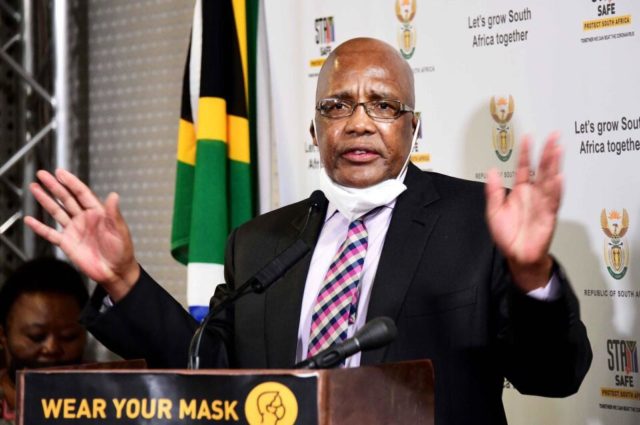Home Affairs Minister said his resolve to set up the committee was strengthened when 14 members of the permitting section signed a petition demanding the Counter Corruption Unit stop investigating their errors.
HOME Affairs Minister Dr Aaron Motsoaledi on Wednesday announced the establishment of a ministerial committee that will review all permits and visas issued since 2004.
This comes three weeks after Motsoaledi expressed the intention in Parliament to set up a task team to review some permits that were issued by the Department of Home Affairs over the years.
This, he said, came after he identified the need to review the permits after realising a trend emerging from the outcomes of cases involving prominent people investigated by the department’s Counter Corruption Unit, which investigates wrongdoing by departmental officials, SAnews.gov.za reported.
“In November 2020, during a high-powered investigation, I was alarmed when 14 members of the permitting section signed a petition demanding that the Counter Corruption Unit should stop investigating their errors,” said Motsoaledi when he addressed a media briefing at the Government Communication and Information System head office in Pretoria on Wednesday.
This admission, said Motsoaledi, “strengthened” his resolve to have a more transparent permit issuance regime.
The ministerial committee has been tasked with reviewing all permits and visas issued since 2004. The committee will review all permits and visas issued in the following categories:
- Permanent residence permits (PRP)
- Corporate visas
- Business visas
- Professional critical skills visas
- Retired persons visas
- Citizenship by naturalisation
- Study visas
Motsoaledi said the ministry chose 2004 as the cut-off date because that was the year the Immigration Act, Act number 13 of 2002, came into operation.
Over the years, he said, the Counter Corruption Unit had established that 66 percent, or nearly two out of every three reported cases, involved permitting.
“This committee is expected to present an interim report in three months. The three months’ period is not an indication of the lifespan of this committee, but this target communicates our desire for a speedy conclusion of the review because most of the information to be reviewed is already held within the Home Affairs Department,” he said.
He said the Ministry was undertaking the review to ensure that each permit has been issued to a qualifying person.
“Our immigration laws have to be implemented in a manner that facilitates economic development and encourages social stability.
’’The expeditious and accurate issuance of these permits can contribute to growing the economy as we emerge from the impact of Covid-19. The committee will also identify loopholes in our system and recommend improvements,” said Motsoaledi.
The minister has already met the committee, which has already started its work.
“We have agreed that the committee will indicate to us how much time it will need to complete this task after taking into account various considerations,” he said.
The members of the committee are:
- Dr Cassius Lubisi – chairperson, with extensive experience in governance as a director-general in government
- Advocate Sesi Baloyi – a senior counsel who is the chairperson of the Johannesburg Society of Advocates. Her specialisations include administrative law as well as employment and labour law.
- Peter Bishop – A forensic investigations specialist with vast experience in both the public and private sector locally and internationally. He was formerly with the Special Investigating Unit.
- Kathleen Dlepu – The Chairperson of the Legal Services Council, formerly Law Society. She’s a lawyer with vast experience and expertise in administrative law.
- Professor Somadoda Fikeni – An academic with extensive experience at university level and a commissioner at the Public Service Commission.








